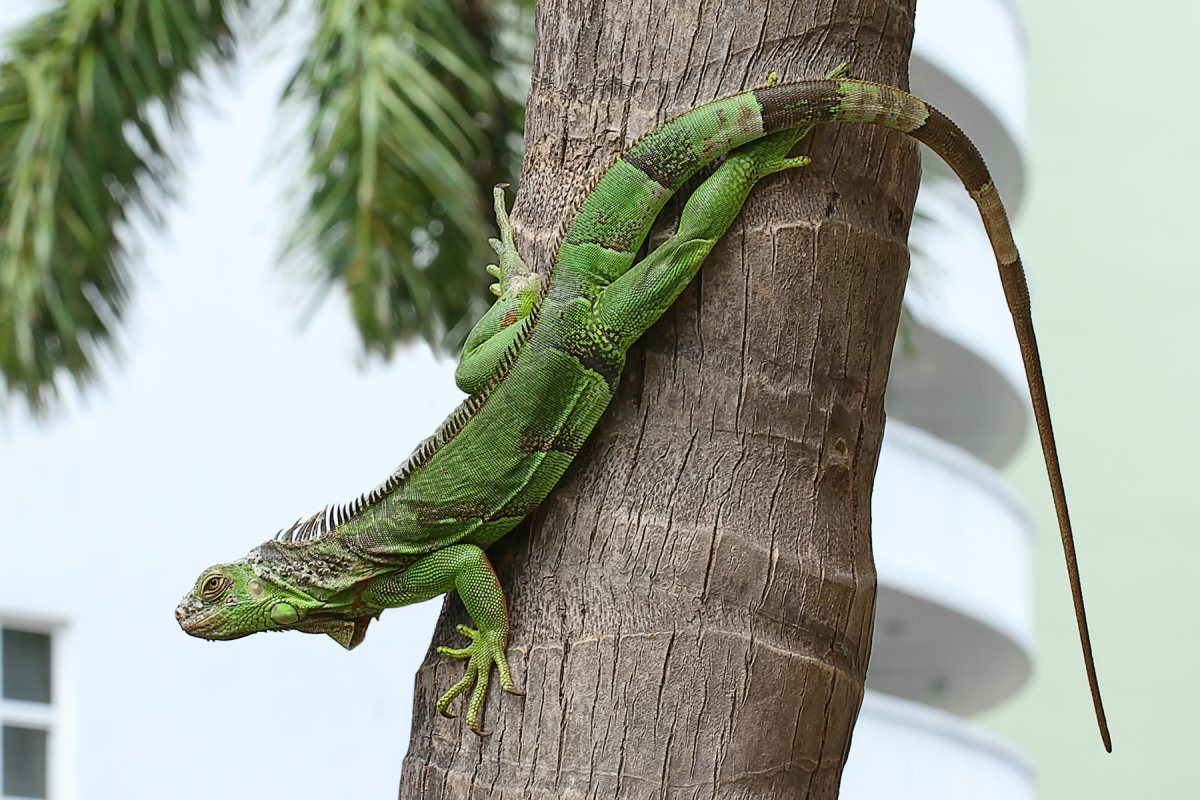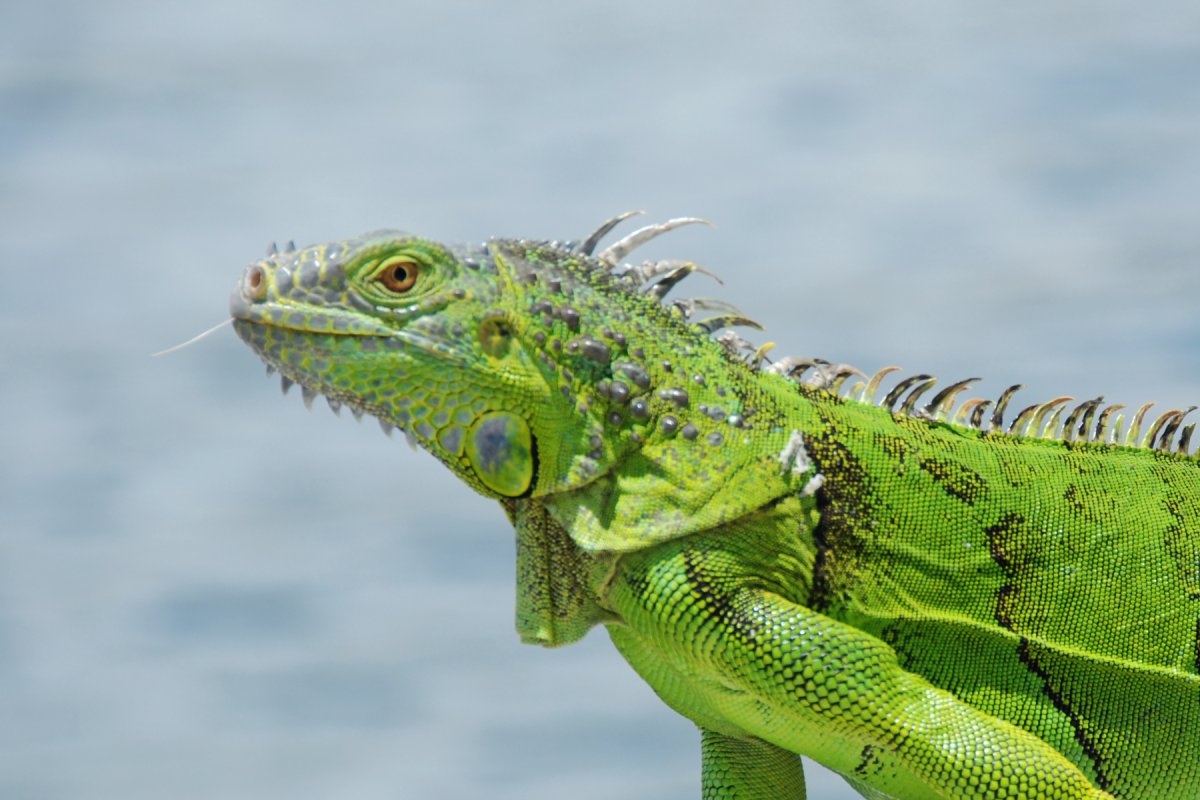The blast of Arctic air that has plunged most of the United States into freezing temperatures may bring another strange risk to Florida: iguanas falling from the sky.
"*FALLING IGUANAS* possible this weekend in Southwest Florida as the coldest air of the season moves in Sunday morning. We have a pretty sizable iguana population from Sanibel to Cape Coral to Naples," Matt Devitt, the Chief Meteorologist at WINKNews in southwest Florida, posted on X, formerly Twitter, on Thursday. "Locally, lows will dip into the 40s, wind chills in the 30s by sunrise."
Devitt noted that iguanas begin to fall from trees around 45 degrees and below.
Three species of iguanas are found across Florida, all of which are invasive to the state, according to the Florida Fish and Wildlife Commission (FWC). These species include the green iguana, the Mexican spinytail iguana, and the black spinytail iguana. They arrived in Florida from their native Central America via the pet trade.
In periods of intense cold, iguanas living in the trees may fall to the ground, appearing as if they have simply died and dropped to Earth. However, the iguanas are usually in a state of cold-driven torpor.
"Iguanas are cold-blooded animals, dependant on environmental heat to maintain a body temperature adequate for physiologic functioning," William Kern, a professor and reptile expert at the University of Florida, told Newsweek.
"If they are exposed to temperatures too low for physiological processes and unable to bask[...]during the day, they can succumb to opportunistic infections from gut bacteria. This is what happened in January 2010. Cool temperatures (40-55 F) and heavy cloud cover for a week made them susceptible to predation and disease."

When they enter this period of torpor, the iguanas lose their grip on the trees and plop to the ground. Luckily, once they warm back up, they return to their usual states. If the weather is sunny, the warmth from the sun can heat them up enough to scurry away.
In colder years, however, the iguanas may take a while to wake back up, and may lead to them dying.
"In 2010, we had a massive die-off not because of excessively cold temperatures but it was cold for over a week with heavy cloud cover so the iguanas couldn't bask and thermoregulate (regulate body temperature). They mostly died from opportunistic gastrointestinal tract infections," Kern said.
The invasive iguanas, particularly green iguanas, are a nuisance in Florida, as they damage local vegetation and native plant life, such as nickernuts/nickerbeans, one of the major food sources of the endangered Miami blue butterfly. They are also known to erode structures with their burrows, including sidewalks, sea walls, and foundations, and leave droppings near homes that may contain salmonella bacteria.
"There herbivorous habits cause damage to landscape plantings, gardens, nursery production, and agricultural crops. Their nesting burrows cause erosion along canal banks and seawalls. They act as a reservoir for salmonella that can infect humans, livestock, and wildlife via their feces," Kern said.
It is legal to kill green iguanas on private property year-round with landowner permission so long as the killing is humane, according to the FWC. The reptiles are only protected by anti-cruelty laws.

Those wishing to move the iguanas are encouraged not to touch the animals with their bare hands, but ultimately urged to leave the animal where it is.
"Leave it alone. They will recover if allowed access to the sun. If they are collected to be eaten, dispatch them humanely, wear gloves while dressing the carcasses, and cook the meat thoroughly," Kern said.
Do you have a tip on a science story that Newsweek should be covering? Do you have a question about iguanas? Let us know via science@newsweek.com.
Update 1/22/24, 12:11 p.m. ET: This article was updated with comment from William Kern.
Uncommon Knowledge
Newsweek is committed to challenging conventional wisdom and finding connections in the search for common ground.
Newsweek is committed to challenging conventional wisdom and finding connections in the search for common ground.
About the writer
Jess Thomson is a Newsweek Science Reporter based in London UK. Her focus is reporting on science, technology and healthcare. ... Read more
To read how Newsweek uses AI as a newsroom tool, Click here.








